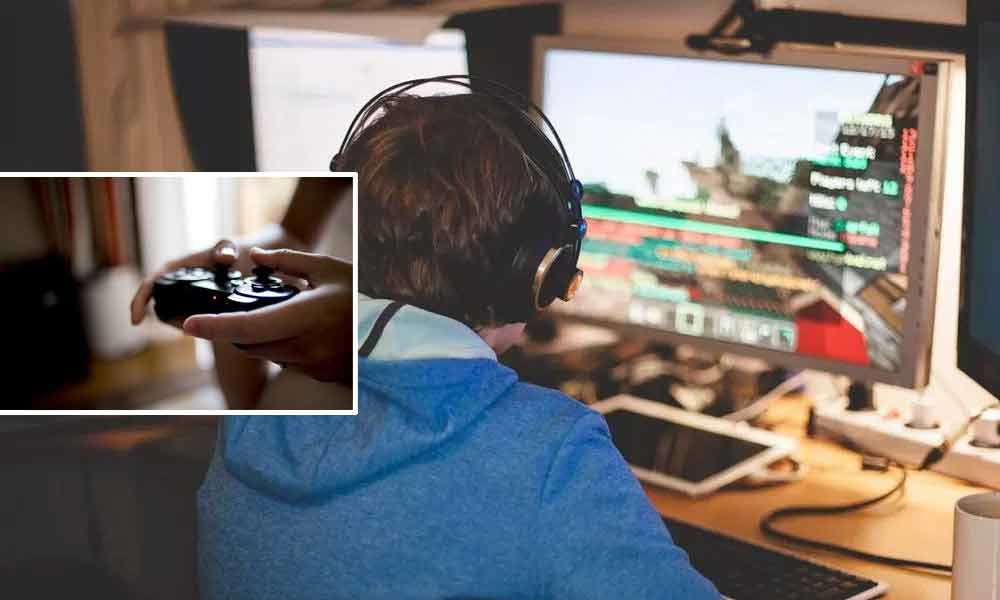Social Media vs Video Games: Screen Time leading to depression and compulsive disorders

- A new study finds that certain types of screen time increase the risk of adolescent depression.
- The study looked at more than 4,000 teens and found more likely to be depressed those who spent long hours on social media and watching TV.
- However, time spent playing video games was not associated with a higher risk of depression.
There is a reason why the term "screen time" has become prominent in recent years: literally everything we use our phones and computers. And while some may be able to make modest use of these technologies, many of us spend an excessive amount of time staring at a screen.
And that's where the issues start, especially in more vulnerable age groups like teenagers and kids. Social media was associated with increased depression in teens, while on certain types of aptitude tests, screen time for younger kids was associated with worse performance.
But not all screen time forms are created in the same way. Now, a new study from the University of MontrealTrusted Source examined how various forms of screen time over the course of several years affected mental health in a group of teenagers.
Video games vs. social media
Researchers found that some forms of screen time had an association for certain specific outcomes, such as depression, while others did not. "With our study, we have shown that increased use of social media and television in a given year predicted more severe symptoms of depression in the same year," said Elroy Boers, one of the authors of the study and a postdoctoral researcher at the Department of Psychiatry at the University of Montreal, to Healthline.
Nearly 4,000 adolescents involved in the study who self-reported a wide range of information including their screen time used to test for a connection between screen time and depression over an average of four years. Boers adds that it is a compelling addition to the current literature due to the strong sample size and length of the study.
The researchers divided screen time into four separate categories to test how different activities affected well-being: television, social media, video games, and another computer activities. Increased screen time showed increases in depression for the first two categories, whereas the latter two did not. "Unlike video gaming and functional computer use, we attribute these findings to the fact that social media and television contain idealized depictions of fellow peers who have 'better lives,' such as depictions of exciting life events and perfect bodies," Boers said.
How social media can affect mental health
The findings are consistent with other recent studies on social media-depression association.
Research published in the Journal of Social and Clinical Psychology (Journal of Social and Clinical Psychology) in December 2018 found a causal link between the two, suggesting that limiting social media makes people less lonely and depressed.
Melissa G. Hunt, Ph.D., the lead author of that paper and the Associate Director of the Psychology Department of Clinical Training at the University of Pennsylvania, said of the research published this week: "I am not surprised that they found an association between increased social media use and increased depression and their data suggest that upward social comparison is a factor in this.
" Last year's Hunt's own research required participants to have iPhones to use usage data to track the user's exact time spent on different apps per day. In other studies as well, the association between social media and depression is prevalent, but the reason is not completely clear, although psychologists have a pretty good idea.
To explain their findings, Boers and his team looked at three different hypotheses.
The first, "displacement," suggests that any time on the screen displaces users from other healthier activities like physical exercise.
"Social upward comparison" happens when people compare themselves to others who seem to be doing better than them; in terms of looks or wealth, that could mean physically.
"Reinforcing spirals" refers to when people seek cognitive information or content.
Practically, what it means is that if you are politically liberal, you are likely to be looking for online information that aligns with your political point of view.
And if you're depressed, well, you might start searching for content that matches your feeling. Boers' work suggests that "upward social comparison" and "reinforcing spirals" are likely drivers of screen time-related depression, but not "displacement." It actually pushes back against the idea of depression-related video games at all.
"The vast majority of kids are socially playing the games, either physically side by side with friends or through headset joining friends. Skills (both technical and social) are rewarded, just as they are on a playground or an Olympic Science team. It only becomes problematic if the only thing a kid does is," Hunt said.
What Parents should know
There are some general takeaways for parents interested in understanding the effects of screen time on their children, but no hard-and-fast rules when it comes to how much time children should or should not spend on their devices.
"Parents should moderate the use of social media and television for their child and/or monitor it. Especially when a child is vulnerable to mental health problems and/or has had mental health problems in the past," Boers said. "Prevent your child from being exposed to fellow peers' idealized content, content that lowers self-esteem and, in turn, increases the severity of depressive symptoms."














